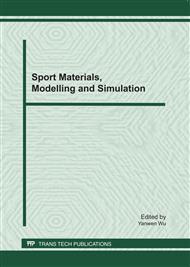p.18
p.23
p.29
p.33
p.39
p.45
p.51
p.56
p.61
Simulation of Conflicts Resolution in Virtual Teams
Abstract:
The purpose of the paper is to study the conflict resolution in virtual teams. Multi-agent technology is used to simulate the virtual team. In the team, agents adapt the Q-learning algorithm to adjust their behaviors. Through the interaction of virtual members, part of conflicts can be resolved by team members. The experiments are manipulated to study the process of the interaction in the team. The results of experiments show a new rule for conflict resolution emerged from the dynamic interactions of agents. The conclusions show significance on the management of team in real world.
Info:
Periodical:
Pages:
39-44
DOI:
Citation:
Online since:
February 2011
Authors:
Keywords:
Price:
Сopyright:
© 2011 Trans Tech Publications Ltd. All Rights Reserved
Share:
Citation:


